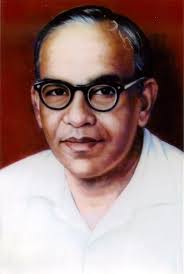Vaman Srinivas Kudva: The Legacy of a Visionary Leader in Indian Banking and Business
Vaman Srinivas Kudva is a name that resonates strongly in the Indian banking and business community. A visionary leader, he played a pivotal role in shaping the banking landscape in India during the 20th century. His contributions not only impacted the financial sector but also transformed the way Indian businesses approached banking, credit, and financial growth. In this article, we will explore Vaman Srinivas Kudva’s life, achievements, daily impacts, and lasting significance in Indian society.
Early Life and Background
Vaman Srinivas Kudva was born in 1909 in the coastal town of Honnavar, Karnataka. Growing up in a modest family, Kudva was exposed to the values of hard work and dedication from an early age. His father, a respected school teacher, instilled in him a deep appreciation for education, which became a cornerstone of his character. After completing his schooling, Kudva pursued higher education at the University of Bombay (now Mumbai), where he earned a degree in economics.
In the 1930s, India was undergoing significant political and social changes, with the country slowly inching toward independence from British colonial rule. During this time, Kudva developed a keen interest in finance, business, and economics, areas in which he would soon make his mark.
Entry into the Banking Sector
Kudva’s banking career began in the 1930s when he joined the pioneering private-sector bank, the Development Credit Bank (DCB), which played a vital role in supporting businesses and entrepreneurs during the early years of post-independence India. His early years in the banking industry were marked by learning, resilience, and an understanding of the economic challenges that India was facing.
Kudva’s deep understanding of the socio-economic conditions of India made him realize that the country’s banking sector needed to evolve to support the growing needs of the Indian economy. This realization prompted him to take bold steps to reform and modernize the banking industry.
Leadership and Impact on the Banking Industry
Vaman Srinivas Kudva became widely known for his work as a leader in the banking sector. His rise within DCB led to his eventual appointment as the Chairman of the Bank, a position he held for several decades. Under his leadership, the bank flourished, and Kudva’s vision for accessible, efficient, and inclusive banking began to take shape.
- Revolutionizing Credit Access: One of Kudva’s most significant contributions to the Indian banking sector was his pioneering efforts in increasing credit access to small businesses, farmers, and entrepreneurs. At the time, the banking sector was highly concentrated on serving large industrialists and corporate giants, leaving small and medium enterprises (SMEs) with limited access to credit. Kudva’s policies focused on improving financial inclusion, ensuring that credit reached even the most marginalized sections of society.
- Focus on Rural Banking: Recognizing the importance of rural development, Kudva made it a priority to ensure that the banking sector extended its reach to rural and semi-urban areas. He advocated for the establishment of rural banking branches, which helped empower farmers and small businesses in rural India. His efforts significantly contributed to the financial inclusion movement in India, making banking services accessible to people in even the remotest parts of the country.
- Innovations in Banking Operations: Under Kudva’s leadership, DCB became a pioneer in adopting modern banking technologies and operational innovations. He was one of the early adopters of technology in the banking sector, and his foresight helped shape the direction of India’s banking sector during a crucial period of growth. His innovative approach also saw the development of new financial products that catered to the diverse needs of Indian customers.
Daily Life and Impact on Society
Vaman Srinivas Kudva was not just a banker; he was a man of values who believed in giving back to society. His daily life was marked by a relentless work ethic and a deep commitment to public service. Kudva’s influence extended beyond the banking sector into education, philanthropy, and rural development.
- Philanthropy and Education: Kudva believed strongly in the power of education to uplift society. He was involved in numerous educational initiatives, contributing to the development of schools and colleges in the areas he served. His philanthropic efforts were aimed at promoting the welfare of the underprivileged, particularly in rural India.
- Mentorship and Leadership: Kudva was a mentor to many young bankers and entrepreneurs. His leadership style was based on humility, integrity, and a deep sense of responsibility toward society. He mentored many aspiring leaders in the banking sector and encouraged them to adopt ethical practices, innovate, and work toward the betterment of society.
- Support for Rural Entrepreneurs: By advocating for the empowerment of rural entrepreneurs, Kudva played a key role in shaping India’s agricultural economy. His work with rural banking branches and his focus on providing financial services to farmers helped uplift millions of people in rural India.
Key Facts About Vaman Srinivas Kudva
- Chairman of Development Credit Bank: Kudva served as the Chairman of DCB, leading the bank through a period of significant growth and transformation.
- Pioneer of Financial Inclusion: Vaman Srinivas Kudva’s work in ensuring that banking services reached small businesses, farmers, and rural areas set a precedent for financial inclusion in India.
- Influential Educator and Philanthropist: Besides his banking career, Kudva contributed significantly to the development of educational institutions and philanthropic initiatives that benefited the rural and underprivileged sections of society.
- Promoter of Rural Banking: His efforts to establish banking infrastructure in rural areas helped bridge the financial gap between urban and rural India, enabling rural entrepreneurs to access capital for growth.
- Innovative Banker: Vaman Srinivas Kudva was one of the early adopters of technology in the banking sector, modernizing operations and expanding the reach of DCB’s services.
FAQs About Vaman Srinivas Kudva
- Who was Vaman Srinivas Kudva?
- Vaman Srinivas Kudva was a prominent Indian banker who served as the Chairman of Development Credit Bank (DCB). He played a pivotal role in shaping India’s banking sector and advocating for financial inclusion.
- What were Kudva’s major contributions to Indian banking?
- Kudva revolutionized credit access for small businesses and farmers, advocated for rural banking, and modernized banking operations through technological innovations.
- What impact did Vaman Srinivas Kudva have on society?
- Kudva’s philanthropic efforts, focus on rural empowerment, and contributions to education helped uplift underprivileged communities. His leadership in banking also contributed to the financial inclusion movement in India.
- What was his approach to rural banking?
- Kudva’s approach to rural banking was focused on extending banking services to rural and semi-urban areas, ensuring that even remote areas had access to credit and other banking products.
- What legacy did Vaman Srinivas Kudva leave behind?
- Kudva’s legacy lies in his pioneering efforts to make banking accessible to all, his focus on rural development, and his role in fostering ethical leadership and innovation in the banking sector.
Conclusion
Vaman Srinivas Kudva’s legacy as a banking leader, philanthropist, and mentor continues to resonate in Indian society. His contributions to financial inclusion, rural empowerment, and educational development helped shape a more equitable and prosperous India. Today, his story serves as a reminder of how visionary leadership, ethics, and a commitment to societal well-being can transform industries and positively impact millions of lives. Vaman Srinivas Kudva’s legacy remains a beacon of inspiration for future generations of leaders.










